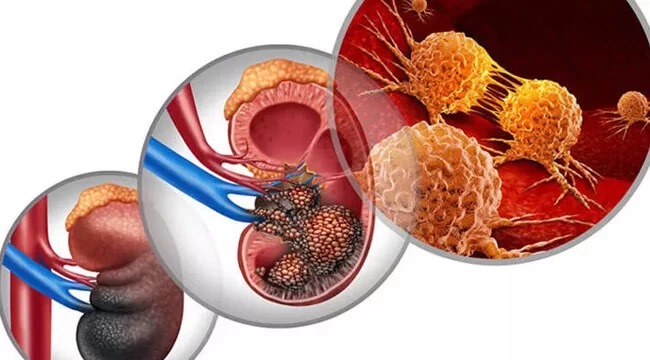
Dr. Waseem Abbas
Cancer Treatment Specialist
Director Research, Max Hospital, Shalimar Bagh
How to contact me
Max Superciality Hospital, FC 50, C and D Block, Shalimar Place Site, Shalimar Bagh, New Delhi, Delhi 110088
Phone: +91 98112 42729
Email: drabbasdoc@gmail.com
Search this website
Common Cancers in India
Get a free E-consultation about lung cancer immunotherapy in Delhi
Kidney cancer treatment in Delhi | Patient information about kidney cancer treatment in Delhi

Renal cell cancer refers to the condition where there is a growth of cancer cells form in the tubules of the kidney. The most common type of renal cancer appears in the renal (kidney) tissue that helps in filtering the blood and produces the urine. This condition is commonly known as renal cell cancer (or renal cell carcinoma). Another kind of adult kidney tumour grows in the renal pelvis where the urine collects and this type of renal cancer is called transitional cell carcinoma.
Symptoms of Kidney Cancer

In most of the cases renal cancer is accidentally found on imaging (USG or CT) done for any other disease or on routine checkup.
- Most of the people accidentally find out about cancer on routine ultrasounds indicative of renal mass. Other signs might be
- (hematuria) blood in the urine
- Lower back pain on either side
- A lump on the side or on the lower back.
- Tiredness
- Loss of appetite.
- Weight loss
- Fever that does not occur due to an infection and that doesn’t go away(FUO)
Risk factors for Renal Cancer
Following are the risk factors for renal cell cancer
- Smoking
- Abuse of certain pain medicines, including over-the-counter pain medicines, for a
- prolonged period
- Obesity
- High blood pressure
- Hereditary renal cell cancer
- Presence of certain genetic disorders like hereditary papillary renal cell carcinoma or von Hippel-Lindau disease.
Stages of Renal Renal Cancer

After the diagnosis of renal cell cancer tests are performed for finding out if cancer cells have spread within the kidney or to any other regions of the body.
Stage I
In stage I, the tumour is about 7 centimetres and limited to the kidney.
Stage II
In stage II, the tumour becomes larger than 7 centimetres and is found only in the kidney.
Stage III
In stage III
In stage III, the tumour is of any size and cancer can be found only in the kidney & in the nearby lymph nodes; or
This stage of Cancer is found in the main blood vessels of the kidney or in the layer of fatty tissue that surrounds the kidney.
Stage IV
In stage IV, cancer spreads past the layer of fatty tissue surrounding the kidney and may be found in the adrenal gland present above the kidney, or in surrounding lymph nodes; or Cancer reaches the bloodstream in the kidney or in the layer of fatty tissue around the kidney. Cancer may be found in the nearing lymph nodes.
What kind of surgeries are available for kidney cancer treatment in Delhi?
Radical nephrectomy is the complete removal of the involved kidney
Partial nephrectomy consists of removal of part of the kidney. It is a preferred option for smaller tumors
Ablation using a catheter is preferred for very small tumors in patients for whom surgery is difficult for various reasons. It has a higher risk of relapse but can be done very safely.
Close observation is an option for elderly patients with poor fitness and slow-growing cancers who are not good surgical candidates
Is it possible to treat kidney cancer without surgery?
Yes! Some patients can be managed with observation/ablation. Some other patients don’t require surgery and can be treated nonsurgically.

Is chemotherapy used to treat kidney cancer?
No. It has been found that kidney cancer usually responds poorly to chemotherapy and so it is only rarely used for kidney cancer treatment.
What is targeted therapy? How does it work in kidney cancer?
Most people with advanced kidney cancer that has spread will have targeted therapy. It uses drugs to target specific molecules (such as proteins) on cancer cells or inside them. These molecules help send signals that tell cells to grow or divide. By targeting these molecules, the drugs stop the growth and spread of cancer cells and limit harm to normal cells. Targeted therapy may also be called molecular targeted therapy.
